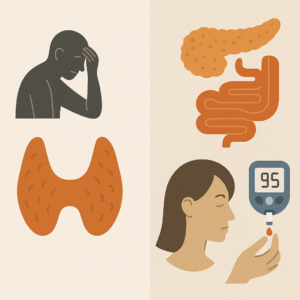Autoimmune Polyendocrine Syndrome Type 3 (APS3) is an autoimmune condition where the immune system attacks multiple hormone-producing glands, most notably the thyroid. It always includes autoimmune thyroid disease, such as Hashimoto’s thyroiditis or Graves’ disease, and at least one other autoimmune disease—but never involves the adrenal glands (unlike APS1 and APS2).

